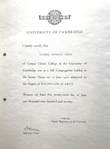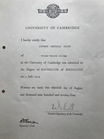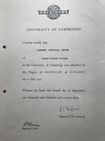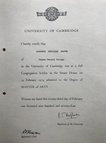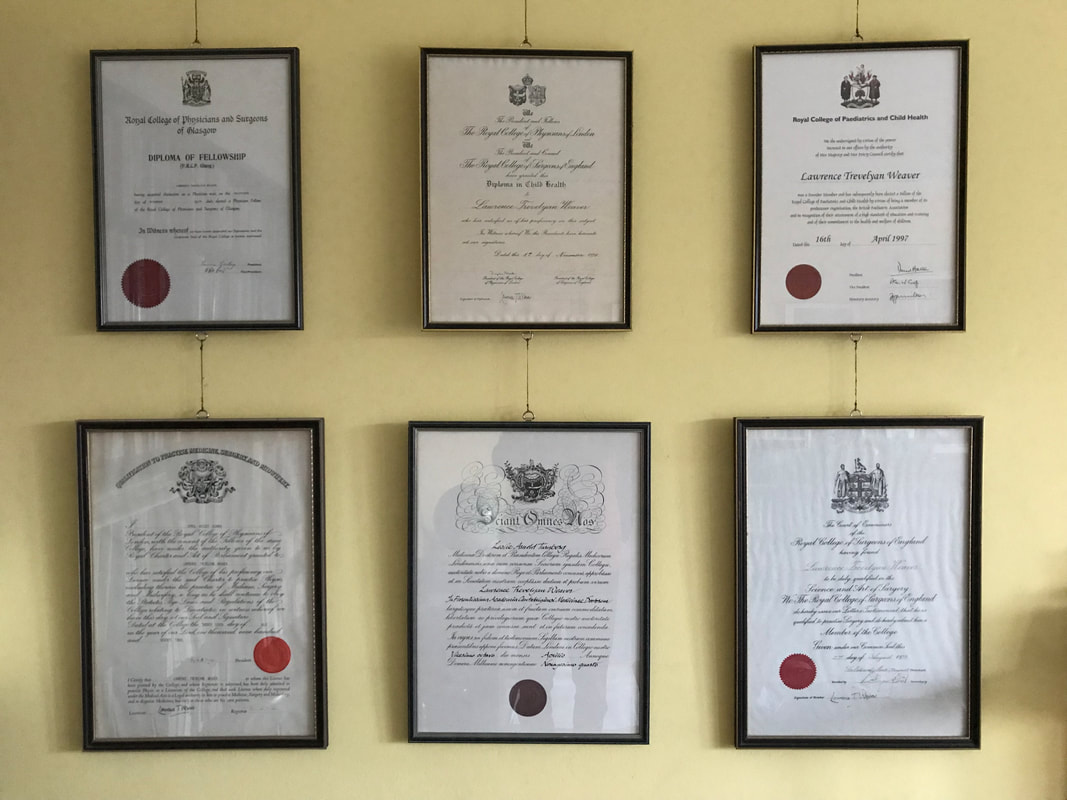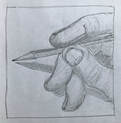Ars Longa Vita Brevis Sic Transit Gloria Mundi
Becoming and being a doctor is a long and relentless process of study and learning, graduation and qualification, training and specialisation, research and practice, marked by degrees and diplomas, studentships and fellowships, awards and elections. These certificates mark steps on the tortuous journey from medical student to consultant.
Undergraduate Medical Studies Bachelor and Master Degrees
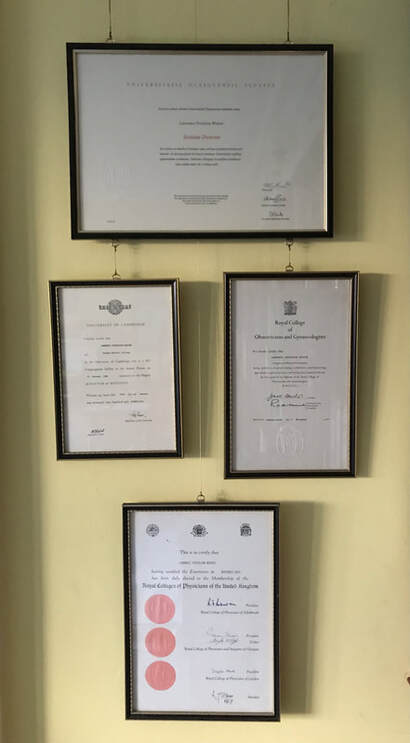 From top: DSc, MD, DRCOG, MRCP
From top: DSc, MD, DRCOG, MRCP
As an undergraduate I was a reluctant medical student. Having read Medical Sciences (Anatomy, Physiology, Pathology and Biochemistry) for my first two years (part 1 of Tripos), I read Archaeology and Anthropology for my third year (part 2). Travels in Latin America for three summers before and during university, made me question whether I really wanted to be a doctor. I graduated from Cambridge with a BA and went to St Thomas’s Hospital for my clinical training. In my second year at medical school I escaped to Uganda for my elective period - three months of Obstetrics and Paediatrics in the tropics - qualified LRCP, MRCS, as well as MB, BChir, in case I failed the latter. I resolved to be a GP, going to Newcastle to do my house jobs. After almost three years as a GP trainee, having also worked for six months each in Obstetrics, General Medicine, Casualty, and Paediatrics, and gaining DRCOG and DCH, I planned to abandon medicine and become an anthropologist. So I went to Durham university to do a MA in Social Anthropology, but soon realised that it was a mistake. I was at the bottom of another career ladder and had lost an inclination for study, and wondered instead if I could combine a career in medicine with some sort of field work in the ‘developing world’. Paediatrics seemed to offer the best opportunities and that required MRCP and specialist training in Child Health, which I did in Newcastle. It also demanded research work, which led me back to Cambridge where I obtained my MD and to Harvard where I completed my higher professional training in Paediatrics and Child Health, with FRCPCH. With both a clinical and research training I went to Glasgow as a consultant paediatrician and scientist, adding FRCP, FRCPSG, and DSc to this list of qualifications.
Each qualification is a milestone. Examination is the rite of passage into a ‘tribal group’ with its own institution (university or college), professional skill (clinical or academic) and history. The certificates reflect the histories of these institutions, with their grand seals, royal charters, coats of arms, presidents and registrars, councils and committees, proclaiming their pleasure in bestowing membership or fellowship. Entry into each soon becomes history as one climbs the career ladder, and beside the CV of posts and appointments, committees and chairmanships, articles, chapters and books, the fourteen certificates represent archaic, but ornamental reminders of progress and professional achievement.
Each qualification is a milestone. Examination is the rite of passage into a ‘tribal group’ with its own institution (university or college), professional skill (clinical or academic) and history. The certificates reflect the histories of these institutions, with their grand seals, royal charters, coats of arms, presidents and registrars, councils and committees, proclaiming their pleasure in bestowing membership or fellowship. Entry into each soon becomes history as one climbs the career ladder, and beside the CV of posts and appointments, committees and chairmanships, articles, chapters and books, the fourteen certificates represent archaic, but ornamental reminders of progress and professional achievement.
